TEL AVIV, Israel—Just before sundown on Tuesday, an Israeli strike killed senior Hezbollah military chief Fuad Shukr in the Lebanese terror group’s stronghold in southern Beirut. By sunrise Wednesday, more than 900 miles away in the Iranian capital of Tehran, another blast had killed Hamas leader Ismail Haniyeh just hours after his meeting with Supreme Leader Ali Khamenei.
The twin attacks—the latter of which Israel has yet to take responsibility for—swept the region into uncharted waters. Amid an ongoing multifront conflict with Iran and its proxies, Israel’s decapitation of senior terrorist leaders signals its willingness to go on the offensive against the militants waging war on its borders.
The targeted strikes followed the deadliest day for Israeli civilians since October 7, when an Iranian-made Hezbollah rocket killed 12 children last week in the Druze village of Majdal Shams. Israel’s military announced that it had targeted Shukr, the alleged orchestrator of that lethal attack and Hezbollah’s chief of staff, shortly after the operation in Beirut on Tuesday evening. As the mastermind behind a Beirut suicide bombing that left 241 U.S. military personnel dead in 1983, Shukr also had a $5 million bounty on his head courtesy of the U.S. government.
“This is a person who has been a part of pretty much every major terror operation Hezbollah has conducted since its founding. This is somebody with a lot of American blood on his hands, not just Israeli blood,” said Richard Goldberg, a senior adviser at the Foundation for Defense of Democracies. Shukr’s assassination also sends a message to his boss, Hezbollah chief Hassan Nasrallah: “Israel’s ability to reach into Beirut, into the neighborhood where Hezbollah’s leadership is headquartered, and to take out an individual of this level, certainly must have Nasrallah watching his own shadow.”
The retaliatory strike was nothing if not expected following the Majdal Shams massacre. But there was more to come. “Tonight, we have shown that the blood of our people has a price, and that there is no place out of reach for our forces to this end,” Israeli Defense Minister Yoav Gallant said in a statement following the Beirut strike, in a possible presage of what was to come.
Hours later, an explosion of unknown origin killed Haniyeh, Hamas’ Qatar-based leader in exile who was visiting Tehran for the inauguration of Iranian President Masoud Pezeshkian. After attending a swearing-in ceremony that included chants of “Death to America” and “Death to Israel,” Haniyeh was assassinated in the capital city of the Islamic Republic, on the heels of a meeting with the ayatollah.
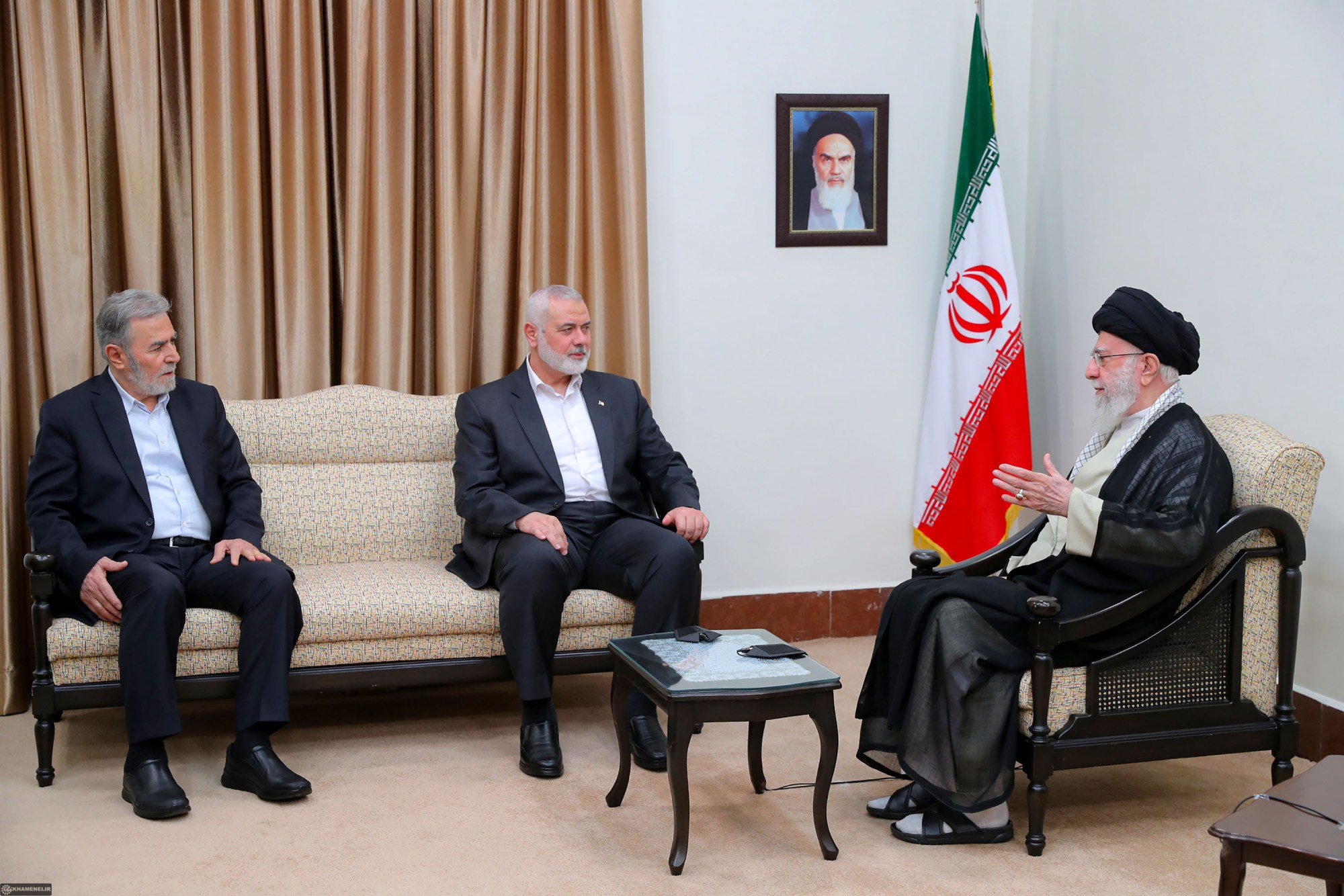
“It is a humiliation for the Iranians, because it is an assassination in their capital, on a very important day, and two hours after Haniyeh met with the supreme leader,” Meir Litvak, a senior research associate at Tel Aviv University’s Alliance Center for Iranian Studies, told The Dispatch. “The supreme leader feels like this is a personal insult, an act of defiance against him.”
Though Israel is likely behind the strike, its methods remain a mystery. Early reports indicate that Haniyeh was killed after a rocket struck the apartment where he was staying, but no details on how the missile was delivered have yet emerged. Nor has the possibility of a covert ground operation been ruled out. Whether the U.S. had advance knowledge of the strike is also unclear. In an interview Wednesday, Secretary of State Antony Blinken claimed that Washington was neither involved nor given notice of the attack.
Regardless, the successful strike marked a catastrophic security breach for Iran—and the latest demonstration of Israel’s ability to execute operations using pinpoint intelligence. Haniyeh joined a growing list of top Hamas leaders killed since October 7, a list includes the terror group’s West Bank commander, Saleh al-Arouri, and its military leader in Gaza, Mohammed Deif.
The assassination was also one in a string of covert operations on Iranian soil. In 2020, Israel’s Mossad intelligence agency carried out an elaborate hit against Iran’s top nuclear scientist using a remote-control operated machine gun. More recently, following a largely thwarted Iranian missile and drone attack on Israel in April, an Israeli weapon struck an air defense radar near a sensitive nuclear site in the central Iranian city of Isfahan.
But with the region on the brink of a broader escalation, the dual attacks on Haniyeh and Shukr could push Israel’s simmering multifront conflict into an all-out war. Khamenei vowed to retaliate for the former after it took place on Iranian soil. “The criminal and terrorist Zionist regime martyred our dear guest in our house,” Khamenei said in a statement Wednesday, “but it also prepared the ground for a harsh punishment for itself.”
Hezbollah—Iran’s most important proxy, with a trained fighting force and arsenal of more than 200,000 rockets and missiles—is also likely to respond following the killing of its chief of staff. Such a response could involve using new weaponry, like precision-guided munitions, or striking deeper into Israel than it has over the last 10 months.
A coordinated aerial attack by multiple of Iran’s militias in the region including Hezbollah, which could overwhelm Israel’s air defense systems, is another scenario Israeli officials are now preparing for. Israeli President Isaac Herzog encouraged Israelis to “show responsibility and diligence, and adhere to instructions and orders” on Wednesday, and Prime Minister Benjamin Netanyahu alluded to “challenging days ahead” in a speech later that day.
A direct Iranian attack—which could resemble the one in April that used more than 350 missiles and drones to target Israel following its killing of a senior Islamic Revolutionary Guard Corps member in Damascus, Syria—may also be under deliberation in Tehran. Iranian officials told the New York Times Wednesday that Khamenei had ordered a direct military response, but what form it might take is not yet known.
“Ballistic missiles, cruise missiles, and drones are all on the table,” Goldberg, a former National Security Council official, told The Dispatch. “What we have learned over the last few months is not to underestimate Iran’s willingness to cross previous, imagined red lines in its own escalation. The regime has paid no price for crossing red lines in various domains.”
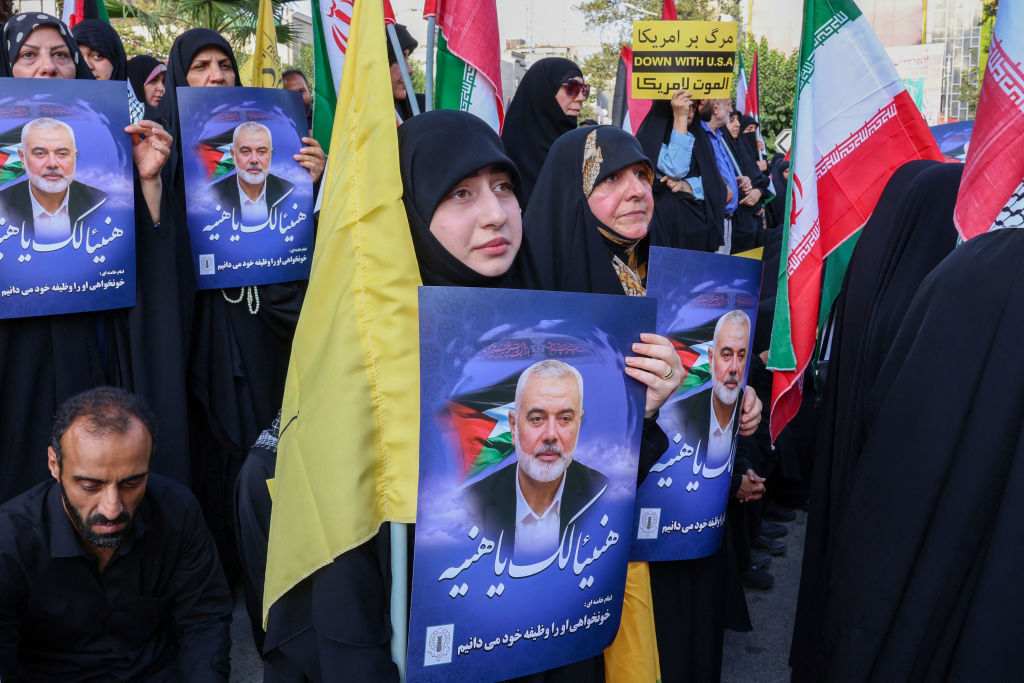

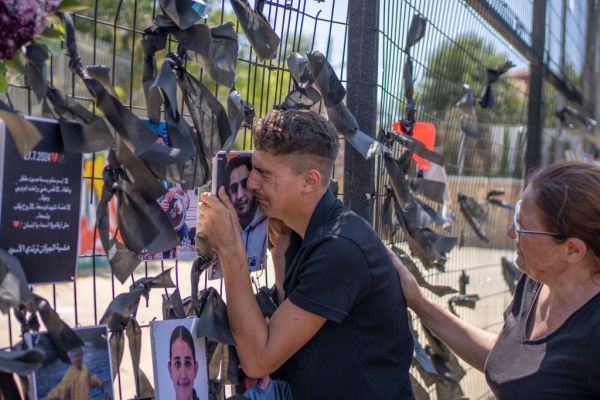
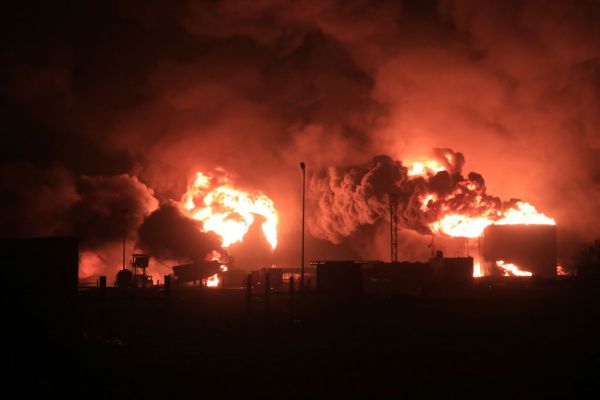
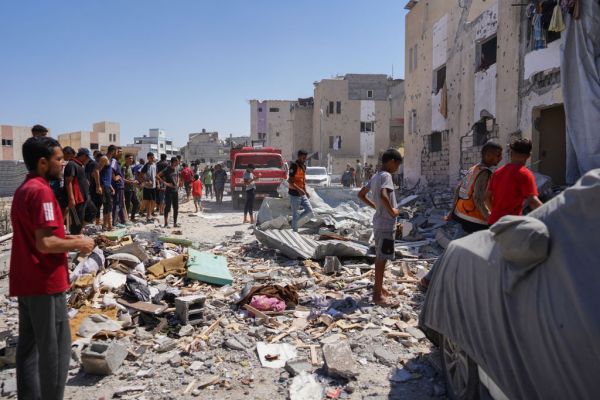

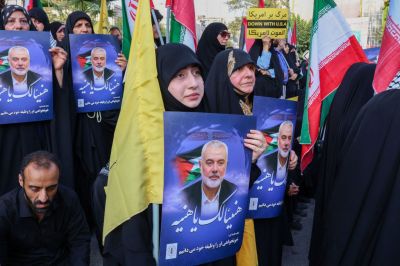
Please note that we at The Dispatch hold ourselves, our work, and our commenters to a higher standard than other places on the internet. We welcome comments that foster genuine debate or discussion—including comments critical of us or our work—but responses that include ad hominem attacks on fellow Dispatch members or are intended to stoke fear and anger may be moderated.
With your membership, you only have the ability to comment on The Morning Dispatch articles. Consider upgrading to join the conversation everywhere.